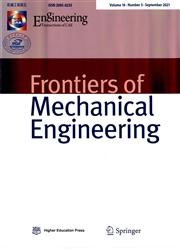A brief review of the rapid transformation of driveline lubricants for hybrid electric and electric vehicles
IF 4
2区 工程技术
Q1 ENGINEERING, MECHANICAL
引用次数: 1
Abstract
Hybrid electric and electric vehicles have represented a small portion of the automotive market for many years and mainly use current lubricants, typically automatic transmission fluids (ATFs). However, regulatory compliance to limit greenhouse gases and increased consumer demand have resulted in a rapid global transition to electrified vehicles. This has prompted the need for new advances in vehicle technology to improve efficiency and thereby increase range. Enabling and optimizing such advances requires a new generation of driveline lubricants. Incorporating an electric motor in a transmission or axle, where the motor is exposed to the gear box lubricant, creates new challenges that focus attention on lubricant characteristics that were previously not differentiating features, for example, electrical and thermal properties. Additionally, lubricants must now also be compatible with the constituents used in electric motors which include new polymeric materials and, in some cases, exposed copper. Compatibility tests of these polymers vary within the industry and the risk of copper corrosion in these applications is not always properly assessed by current specification tests. In this paper we will begin with a brief history of electric vehicles, highlight how driveline lubricants, specifically ATFs, have evolved over the years to meet new hardware requirements and then describe the performance requirements expected of lubricants specifically designed for vehicles with electric drive units (EDUs). Our primary goal, however, is to summarize the recent literature that illustrates the changing importance of various lubricant performance properties, new proposed test methods and offer some insight into future e-lubricant evolution.简要回顾了混合动力汽车和电动汽车传动系润滑油的快速转型
多年来,混合动力电动汽车和电动汽车只占汽车市场的一小部分,主要使用当前的润滑油,通常是自动变速器油(ATF)。然而,遵守限制温室气体的法规和消费者需求的增加导致了全球向电动汽车的快速过渡。这促使人们需要车辆技术的新进步来提高效率,从而增加续航里程。实现和优化这些进步需要新一代传动系润滑剂。在变速器或车轴中加入电动机,电动机暴露在齿轮箱润滑剂中,这带来了新的挑战,将注意力集中在以前没有区分特征的润滑剂特性上,例如电气和热特性。此外,润滑剂现在还必须与电动机中使用的成分兼容,这些成分包括新的聚合物材料,在某些情况下,还包括暴露的铜。这些聚合物的相容性测试在行业内各不相同,目前的规范测试并不总能正确评估这些应用中的铜腐蚀风险。在本文中,我们将从电动汽车的简史开始,重点介绍传动系润滑油,特别是ATF,是如何在多年来不断发展以满足新的硬件要求的,然后描述专门为配备电动驱动单元(EDU)的车辆设计的润滑油的预期性能要求。然而,我们的主要目标是总结最近的文献,这些文献说明了各种润滑剂性能特性的重要性不断变化,提出了新的测试方法,并对未来的电子润滑剂发展提供了一些见解。
本文章由计算机程序翻译,如有差异,请以英文原文为准。
求助全文
约1分钟内获得全文
求助全文
来源期刊

Frontiers of Mechanical Engineering
Engineering-Mechanical Engineering
CiteScore
7.20
自引率
6.70%
发文量
731
期刊介绍:
Frontiers of Mechanical Engineering is an international peer-reviewed academic journal sponsored by the Ministry of Education of China. The journal seeks to provide a forum for a broad blend of high-quality academic papers in order to promote rapid communication and exchange between researchers, scientists, and engineers in the field of mechanical engineering. The journal publishes original research articles, review articles and feature articles.
 求助内容:
求助内容: 应助结果提醒方式:
应助结果提醒方式:


